Book reviews
 |
 |
 |
 |
 |
 |
 |
Black Beauty: A Sentimental Worldview that Wrongly Humanizes Animals
Book Review of Black Beauty, by Anna Sewell,
London: Jarrold & Sons, 1st ed 1877, 255 pp
London: Jarrold & Sons, 1st ed 1877, 255 pp
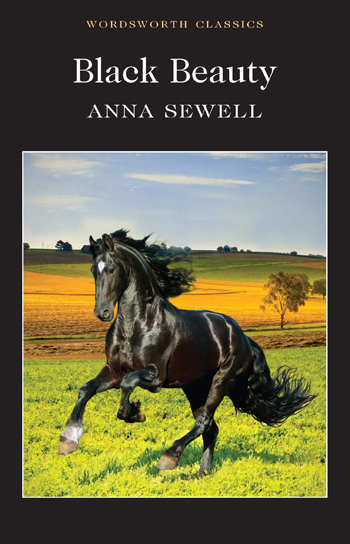
This category is a different type than the stories discussed in Dr. Horvat’s article, for in these "realistic" stories the animals do not act or dress like humans, but rather think and feel like humans while living the normal life of an animal. This is a common theme in today’s world where animal-lovers like to pretend that animals have souls like humans.
It is this type of children/adult book that, indeed, as our reader lamented, “creates a false idea of animals and can foster an effeminate attitude and thus a reluctance or antagonism towards slaughtering and eating animals.” Women, more prone to be emotional and sentimental, are the primary authors of this type of literature, which we will call "animal autobiographies."
Some examples of books for parents to avoid in this genre are Charlotte’s Web by E.B. White, A Dog's Life: The Autobiography of a Stray by Ann Martin, and Bambi, a Life in the Woods by Felix Salten, to name but a few. In this article, I will discuss Black Beauty, the most popular "animal autobiography."
Black Beauty, written by Anna Sewell from a sick bed in 1877, follows the life of a black stallion named Black Beauty that is born in an English country estate and sold various times in his lifetime. Written in first person, the horse relates his "joys and sufferings" and his impressions of other horses and people.
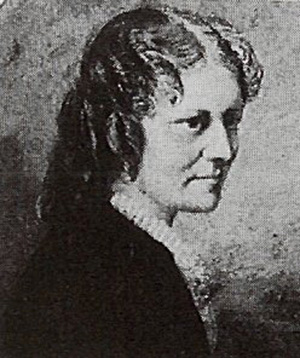
Anna Sewell, Quaker & admirer of the 'Christian Socialist Movement'
Having read Black Beauty as a child, I remember liking the story and empathizing with the beautiful black stallion; thus I thought that the novel, nominated a classic, was a good children’s book. Recently I reread the story and, this time around, came away bewildered that it should have become a children’s classic.
It is very poorly written: The plot is slow and choppy and the prose is nothing to be praised. There is no hidden meaning or symbolism in the story: Every moral lesson is blunt and straight without any subtlety or supernatural insights.
The chapters go from one lecture to another, something irritating, predictable and undesired in a novel. Rather than to entertain or inspire one to virtue, the book seems to have no other value but to preach how a horse should be treated.
Indeed, Miss Sewell admits to this aim, saying that her sole purpose in writing the novel was “to induce kindness, sympathy and an understanding treatment of horses.” And she does not stop there – the author goes on to lecture against what she considers other evils of man such as fox hunting.
Animal rights & Black Beauty
In view of its stated purpose, it is no wonder that Black Beauty is on the top of the list of “animal rights books,” as promoted by PETA. It was also the animal rights activists of the 19th century who made it an incredibly spread novel.
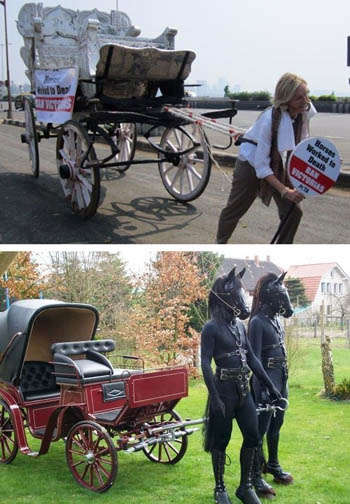
PETA animal rights protesters against horses serving man
The animal rights advocates of today can trace their history back to protestant Victorian England and its animal protection movement - the same movement that inspired Black Beauty and that led to the extreme animal rights advocates of today. What sprang from the simple desire to see animals treated well has led to the radical position promoted by PETA today that animals are equal to men.
Why is this? Because the movement lacked foundation in the Catholic principles that help man to understand his place in Creation; rather, it based itself on evolutionary pseudo-science and sentimentality, which readily led to the idea that humans are only a species of animals. In such case, animals must have souls and feelings like humans. This is the message lurking behind the weak story line in Black Beauty, whether intended or not.
For these reasons, Catholics should not read books presented from an animal’s perspective, as if an animal, operating on human-type emotions, intelligence and will, could judge the actions of humans. Books like these are not good for anyone, but especially not for children, who are led to believe that animals think and feel just like we do.
A dark & depressing worldview
In Black Beauty, there is yet another problem: Reading it, one feels an overwhelming hopelessness. Every chapter of the book introduces a new misery to which animals and also humans are subject, which can leave the reader in a state of depression, for there is no redemption or salvation for the animals - and very little presented for the humans either.
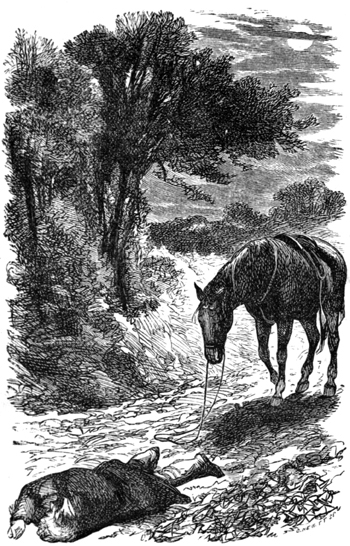
Many bleak & depressing episodes
As can be seen from these few examples, the story is dark and depressing. It is sad enough to read about animals being cruelly treated, but the reader must also follow the horse's feelings and memories of past friends and better times.
The last words of the book spoken by Black Beauty, supposed to be cheerful, are actually melancholic and completely unrealistic for an animal: “My troubles are all over, and I am at home; and often before I am quite awake, I fancy I am still in the orchard at Birtwick, standing with my old friends under the apple trees” (p. 288).
Thus, the reader is led to remember the sad fate of his old horse friends. It explains why PETA is enthused with this novel that was ahead of its times.
Over-emphasizing the cruelties of the world can make a child sad and discouraged, and even cause him to abandon his innocence and idealism; or, it can make a child bitter and critical, preparing him to take up the banner of animal rights and enter the Green movement, the new phase of Communism.
The importance of treating animals kindly
Having said this, we admit that many of the problems Miss Sewell addresses in the book are true: Man has the duty to treat animals well because God gave him stewardship over them. An animal should not be viewed as a kind of machine to be used and drained until it can no longer work.
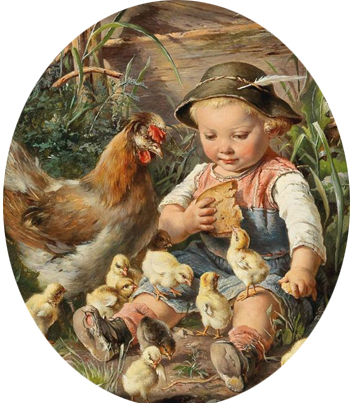
Children can be encouraged to innocently admire nature
without moralizing sermons
Here, Miss Sewell's preaching is true. There is, however, a way to teach children to treat animals well without making moralizing sermons and presenting animals with emotions as if they were humans.
As Miss Sewell observed, Victorian England was cruel to animals and to poor people. But if she were Catholic she would have addressed those problems by writing charming stories full of hope and virtue.
Catholic families can be reassured that, if they read good books to their children and encourage them to admire God’s creation, looking at each animal as a reflection of some aspect of God and keeping the animals in their proper places, their children will not be cruel to animals, nor will they treat them like humans. One needs only discover the purpose God had for creating each animal to know the the animal’s role in our world.
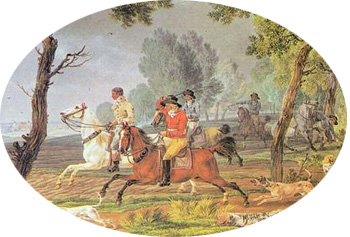
Sewell opposed the hunt as cruelty to horses and men
Posted November 11, 2020
______________________
______________________





